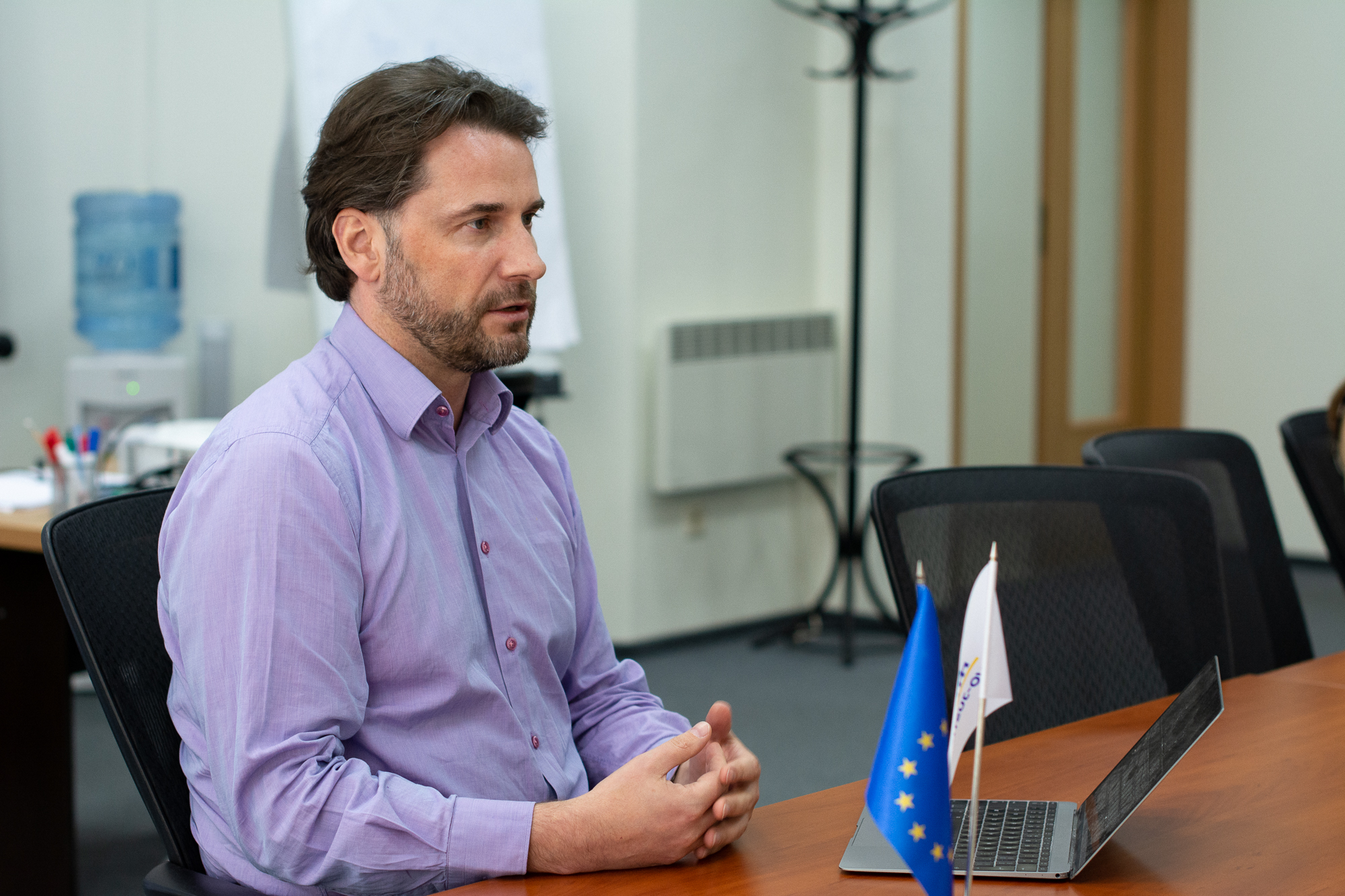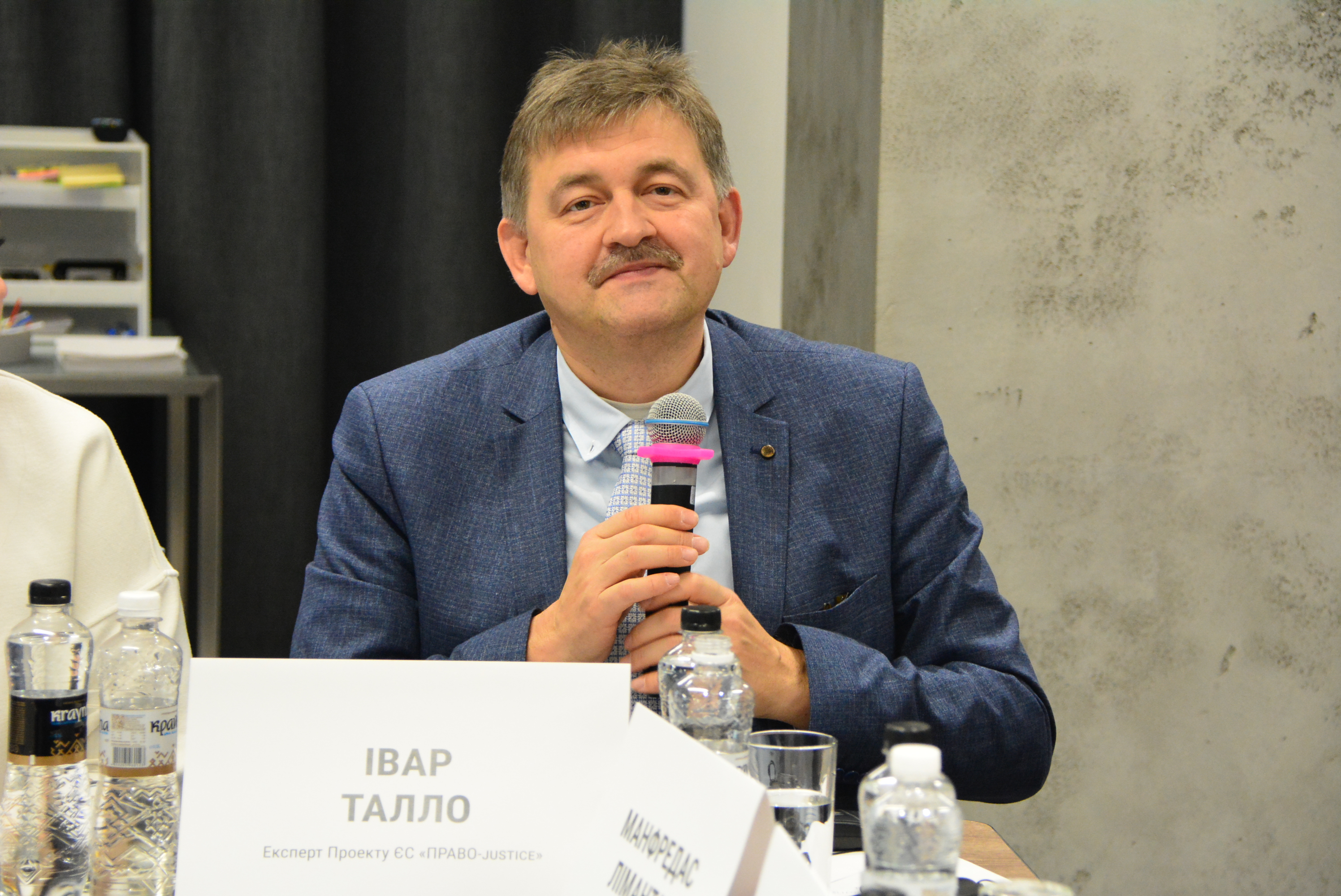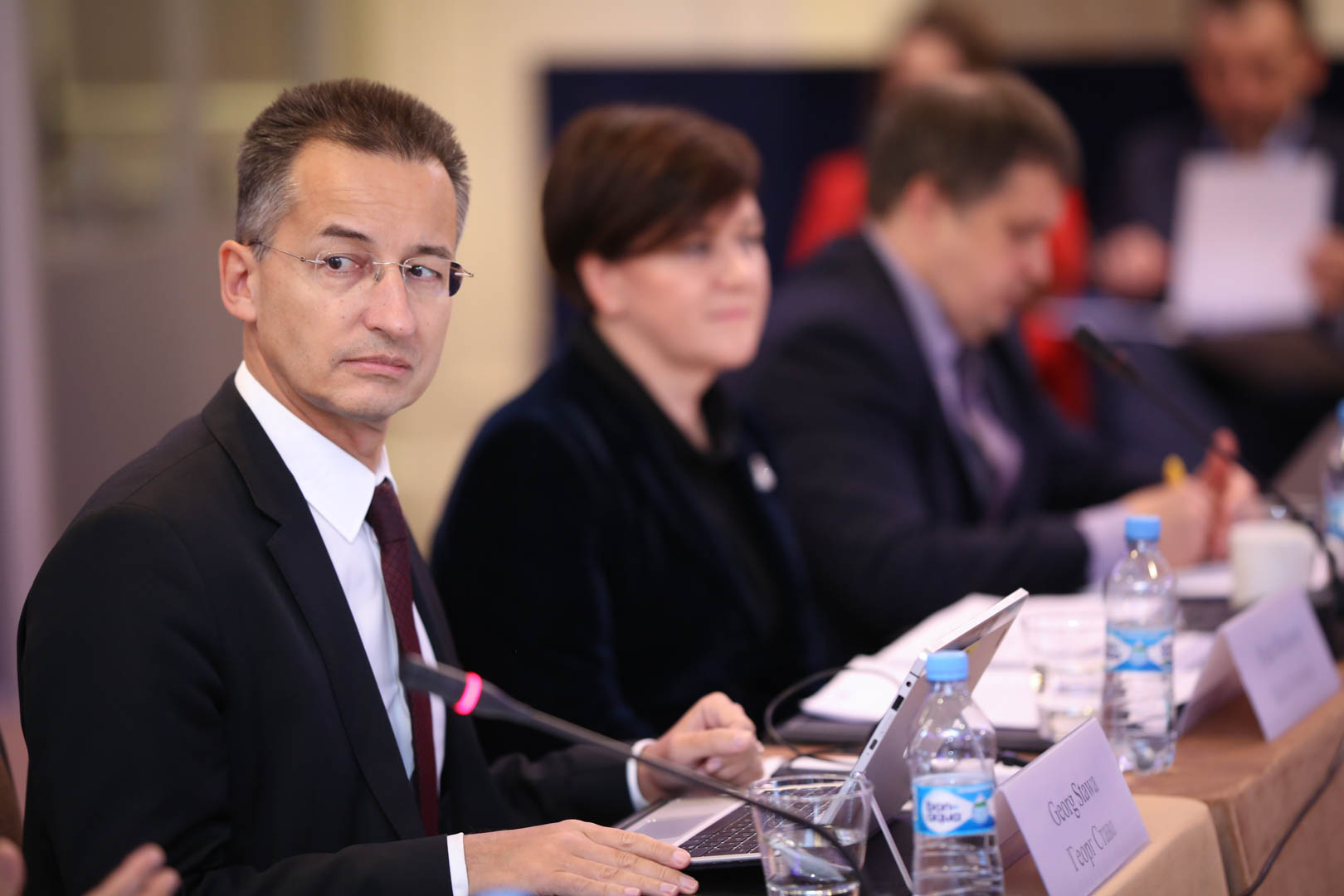Court session where lawyers work from cell phones in cars: European e-court
Quarantine measures have changed the mode of operation for each area of activity, justice being no exception. How does e-litigation work in Ukraine? How is it different from e-court in Poland? Why is there no need to identify a person during online meetings in Sweden? Is it true that in Germany fax is considered to be an element of e-justice? International experts of EU Project Pravo-Justice discussed the specifics of e-justice at the webinar "Remote administration of justice".
Ukrainian-style e-court
The discussion around Ukrainian online justice began in 2010, when Regulation on Court Automated Document Management System appeared. But this issue was followed up deeper only in 2018 when it was decided to create the Unified Judicial Information and Telecommunication System (UJITS). Although today the system should be actively implemented, in real practice the concept remains only on paper and is still being approved by several judicial authorities.
But the pandemic is adjusting the development of electronic justice in our country. During the quarantine, the Parliament of Ukraine adopted the law which actually marked the beginning of of courts working online.
More than 200 remote court hearing have been held since April. And whereas previously the parties to the case could count only on a video conference which "connected" the courtrooms of different courts, now we are talking about full-fledged online trial when the parties to the case can participate in the court hearing by videoconference outside the court premises, using their own devices. The executive power plays an important role in the further development of e-justice in Ukraine, says Dovydas Vitkauskas, Team Leader of EU Project Pravo-Justice.

"We need to talk about the role of the executive power in the implementation of such an initiative. And here we speak about the Cabmin in general and the Ministry of Justice, and the Ministry of Digital Transformation, and the Ministry of Finance. I think the success of this project will depend on their participation, on the level of their support if we are trying to follow best European practices", Dovydas said.

Ivar Tallo, international key expert on e-Justice of EU Project Pravo-Justice introduced some concepts as to global issue of e-Justice. First: “Not all judges have a similar attitude to technology. People generally treat them differently, and we need to take that into account.” That is, there should always be room for both e-court and traditional one.
Another important aspect the expert mentioned is the cost of innovation. "New technologies are expensive and they require constant investment. This must be taken into account when forming justice budget".
E-court policy in Austria

Georg Stawa, former President of the European Commission for the Efficiency of Justice, international short-term expert of the EU Project Pravo-Justice shared Austrian experience.
Georg Stawa notes that whereas previously certain categories of cases were being considered for up to three months and the rest remained unconsidered, under the current circumstances they cannot afford such a thing. The way out is to increase effectiveness in courts with the help of technical means. Minor cases are also dealt with more quickly and maybe it is necessary to reject cases that do not involve a dispute.
The country has a video conferencing system that allows to invite advocates registered therein. They receive a link to go to the online hearing.
"Recently our parliament has decided that the participation of third parties in the proceedings through video conferences is possible. The participants in the court hearing must be ready to confirm that they know such a person. Of course, this is not an ideal solution and it is not applicable in all cases. But the availability of such an opportunity allows us not to postpone the consideration of at least certain cases", Georg Stawa shared.
Currently, the most important proceedings that cannot be conducted via video conferencing are considered "offline". In such cases, only parties to the case are admitted to the meeting.
9 facts about the digital experience of Estonian courts during the pandemic
Estonia which has a reputation of online country, is constantly developing its online litigation practices. Those were introduced by Heili Sepp, Judge of the Viru County Court that belongs to the country's criminal jurisdiction.
- Four days after declaring the state of emergency, the Estonian Council of Judges issued formal recommendations to the courts. All court employees, including judges, are allowed to work remotely. Courts were obliged to provide laptops or tablets to employees to work from home. This decision concerns the courts of first and appellate instance.
- Most trials were transferred to cyberspace although they would normally take place in courtrooms. "I had a court session where an advocate worked via a mobile phone while in a car."
- Increased share of written proceedings.
- People come to court less. After all, it is easier to participate in the proceedings electronically.
- A hearing is held in court if the case cannot be heard online or the public strongly insists on attending the hearing.
- Courts of first instance (the court that first hears the case, directly examines the evidence and makes decisions) were accustomed to working remotely well before the quarantine.
- All cases that allow for written consideration are considered in writing with the use of electronic signatures.
- Availability of own software.
- Even before the pandemic when decisions were made to arrest a person or extend the arrest, such meetings were held via video conference. A detainee is escorted to the court premises only when there is a serious need.
Is there a revolution in e-justice in Germany: from fax to online communication
Carsten Mahnke, international short-term expert of the EU Project Pravo-Justice informed about digital justice in Germany. "Germany is one of those countries that can use the current situation with the coronavirus as a sign that we need to wake up. It's a kind of alarm clock for quick response to change".
The expert states, “We will not be able to cope with this crisis because of primitive of e-justice tools. After all, many colleagues in Germany still think that fax is e-justice."
But changes are taking place, albeit by small steps. In 2013, a law was passed that showed the opportunities for electronic communication with the courts. Such an electronic system also helps to keep track of what is going on around the filed case. Users, such as advocates, are "connected" to it via personal electronic digital signatures.
Video hearings enshrined in the Code of Civil Procedure are possible only under one condition. This is when one of the parties in the court hearing is not able to appear in court. Carsten Manke says, "It also has to do with the German tradition we have in our law. Recording in court is not allowed. This law is upheld by the Constitutional Court. The argument is as follows: witnesses, parties and lawyers may behave differently in front of the camera. And because of this we cannot obtain valid evidence from them".
Lithuania and the popular judicial information system
"With the implementation of anti-virus measures, the Lithuanian Judicial Administration has provided very general recommendations and left it to local courts to decide," said Nerijus Meilutis, Judge, President of Kaunas Regional Court, international short-term expert of the EU Project Pravo-Justice.
Nerijus issued an order in his court that only persons directly involved in the proceedings shall be present. "In-person" consideration of cases became possible only if it was urgent. For example, these could be court proceedings to extend or lift a protective measure.
"All other cases can be considered online. At the same time, there is no restriction on the use of certain software or applications with which such a meeting is held."
This mode of operation for Lithuanian courts is not something unusual because in 2019 alone 122,470 electronic cases were considered. The country has a developed e-justice in place. Back in 2005, LITEKO information system appeared which currently has 80,000 registered users. The software includes automatic distribution of cases, audio recordings of court hearings, electronic document flow.
It also provides a variety of electronic litigation services and includes information on court reports on statics. LITEKO can be a great example for the Ukrainian UJITS.
Polish E-court or electronic payment proceedings?
The situation with online justice in Poland has its own peculiarities that distinguish it from other countries. Details of the proceedings were presented by Anna Adamska-Gallant, international key expert on judiciary of EU Project Pravo-Justice. Anna has worked as a judge in Poland for 13 years.
"The e-court in Poland considers all cases related to electronic payment proceedings of any amount. Its jurisdiction covers the entire territory of the country. Proceedings are conducted exclusively electronically, without the participation of the parties and in closed session".
As for the current situation with the coronavirus, the law provides for the suspension of cases. Judges only continue to deal with urgent proceedings. These include cases of arrest, extension of arrest, civil code proceedings and the like.
To date, there is no possibility to consider cases via video conference. Now in Poland, the Parliament is preparing a draft of amendments to the procedural codes so that hearings are possible via video conference. But no one knows how it will be done technically because there are no executive laws in this regard.
Court without quarantine in Sweden
Nicklas Soderberg, Senior Judge, Helsingborg District Court, international short-term expert of the EU Project Pravo-Justice: "We do not have quarantine. The courts continue to function. I go to work every day, we hold meetings. We have no special laws, no state of emergency."
Ten years ago, Sweden underwent a major reform of procedural law. Since then, all proceedings at first instance have been audio- and video-recorded and stored. Another important aspect is that there are no restrictions on participation via video: both parties and witnesses can take advantage of this.
"Our system has not checked the identification of participants in the trial for ten years. A person simply states what his role is in the process, whether he is a party or a witness. We trust the citizens."
According to the judge, in April, in just one week, there were 3,500 video conferences of court hearings which were attended by more than 10 million people. Meanwhile, in such hearings one party is always the courtroom, and the other – the person who participates in the meeting from home or office. Participants receive a link that opens access to the system through a browser.
We understand that we live in a world where virtual methods of administering justice will become increasingly difficult to ignore. Therefore, the establishment of e-justice should be on the agenda of those countries that have not yet done so. This is really palpable during the pandemic. After all, this is the only way to ensure the survival of the judiciary.